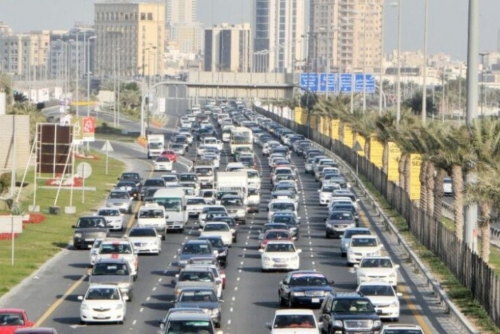Kingdom Takes Major Step to Alleviate Traffic Congestion
TDT | Manama
Email: mail@newsofbahrain.com
The Kingdom has moved forward in addressing its traffic challenges, as His Royal Highness Prince Salman bin Hamad Al Khalifa, the Crown Prince and Prime Minister, issued Edict (56) of 2024 yesterday. This directive introduces structured internal regulations for the Traffic Council, chaired by the Minister of Interior, setting a coordinated framework to address ongoing traffic concerns.
Scheduled Meetings
Under this edict, the Traffic Council will convene every six months, with additional meetings possible to tackle urgent issues. Confidentiality is emphasized, allowing Council members to work effectively on initiatives to improve Bahrain's roadways. Decisions will be made by majority vote, with the Chairman empowered to cast a tie-breaking vote, fostering swift and decisive action.
Work
The Council’s work will be facilitated through provisions for remote participation and electronic voting, ensuring continuity and flexibility in decision-making.
The edict also calls for the formation of a Technical Committee within the Council, led by the Director-General of the General Directorate of Traffic. This specialized committee will address issues referred by the Council, drawing on research to recommend effective solutions. The Council may form additional committees and consult external experts to gain insights on complex traffic matters.
Notifications
The Traffic Council Secretary will manage notifications, agendas, documentation of meetings, and follow-up on Council resolutions. An annual report will detail the Council’s actions, achievements, and future recommendations, ensuring transparency and accountability.
Bahrain’s new Traffic Council framework marks a strategic response to its traffic congestion, aiming for smoother, safer roads. Through a structured and expert-driven approach, the Kingdom seeks to enhance public safety, improve traffic flow, and support economic growth with a more efficient transportation network.
Related Posts

